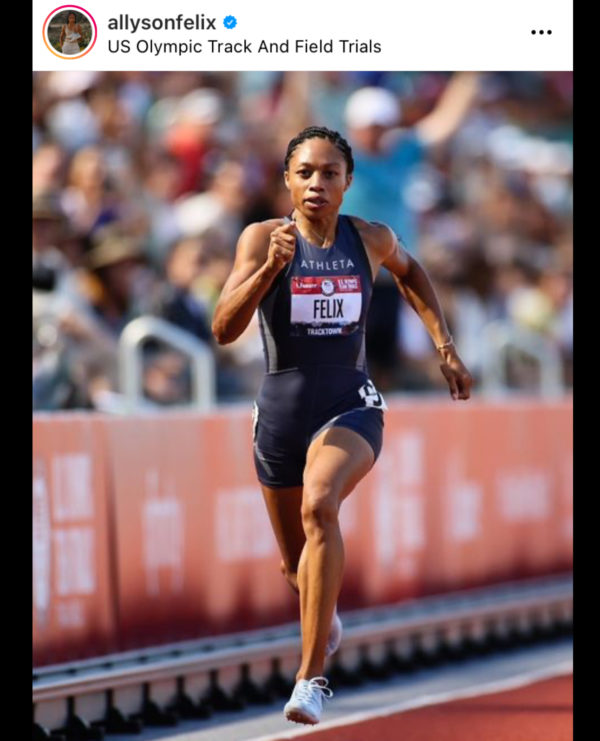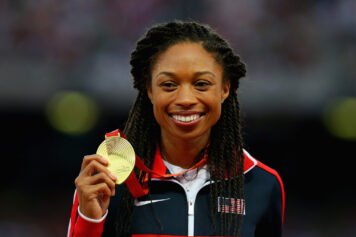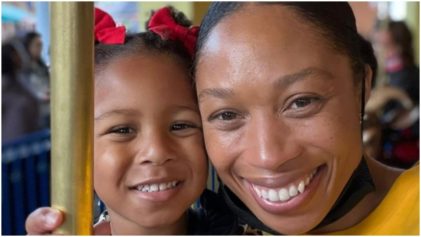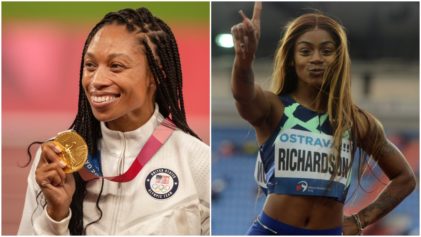Details leading up to the split between six-time Olympic gold medalist Allyson Felix and Nike are continuing to come to light. The track star parted ways with her longtime sponsor two years ago.
But now, the owner of her own athleisure brand Saysh, Felix says the lack of consideration shown to her by Nike was deeper than facing pay cuts. Felix and the corporate giant found themselves at odds when the sprinter became pregnant with her first child, daughter Camryn. She says the company threatened to decrease her pay by 70 percent, and refused to provide any contractual pay protections for her and other expecting female athletes.

But in the public, Nike wanted consumers to believe they were pro women having “it all,” even going as far as inviting Felix to participate in a women’s empowerment ad not long after the birth of her daughter in November 2018.
“My stomach dropped,” Felix said to Time magazine in an interview published this week. The most decorated female track athlete in the country was engaged in tense negotiations with Nike, a company she thought aligned with her own core values, only to realize she and other female athletes were only profitable when choosing not to start a family. The sting of the insult was deep.
“I was like, this is just beyond disrespectful and tone-deaf. That’s when I decided to speak out.” In May 2019, Felix penned an op-ed for The New York Times detailing how Nike refused to amend contract terms that would allow expectant and new mothers to continue earning a living at their pre-pregnancy levels.
“I asked Nike to contractually guarantee that I wouldn’t be punished if I didn’t perform at my best in the months surrounding childbirth…Nike declined,” she wrote.
Although the company would eventually compromise in August 2019 by agreeing to not enact performance pay reductions for a year following childbirth, the company now says, in a statement to Time: “We regularly have conversations with out athletes regarding the many initiatives we run around the world. Nike has supported thousands of female athletes for decades. We have learned and grown in how to best support our female athletes.”
But Nike’s 2019 compromise was too little, too late.
“Nike sometimes, they feel like you don’t have another option. So they can get away with stuff like that because, where are you going to go,” says Felix.
Felix elected to leave the company that sponsored her for more than a decade, opting instead to join the female-led Athleta. Felix is the company’s first sponsored athlete. And while marking her return to the Olympic Trials in June, she made sure to represent her lifestyle brand by competing in a pair of Saysh spikes. She qualified for a fifth Olympic Games in the 400 meters, marking her return to the Games, her first as a mother.


